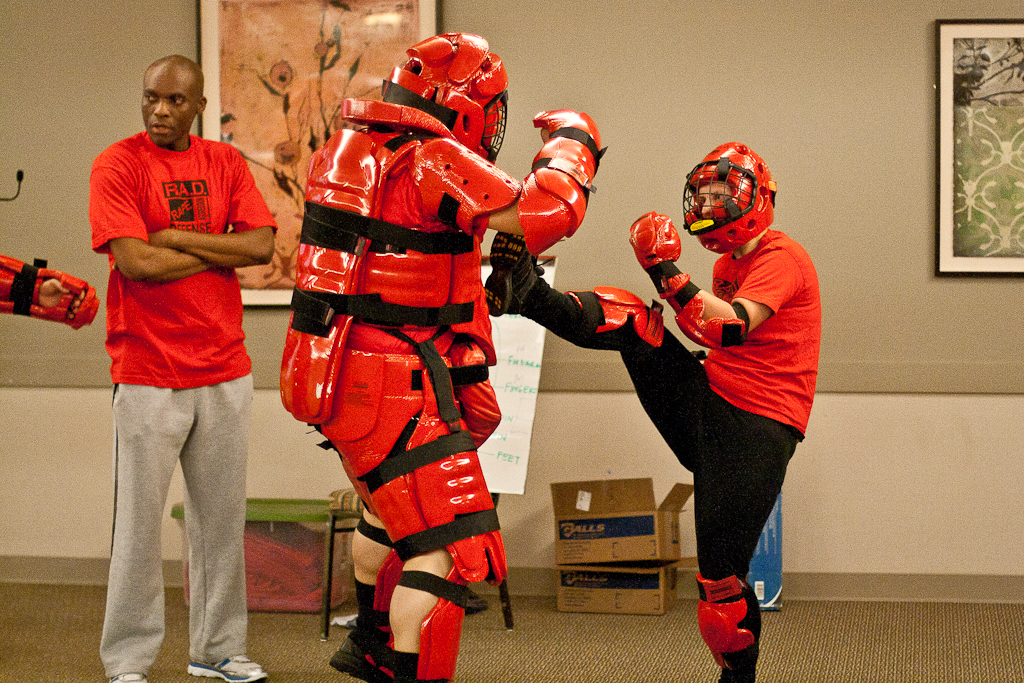Biola is dedicating this week, April 23 – 27, to observe what has been national Sexual Violence Awareness Month, with special chapel sessions, lunches and activities.
“We hope that this week will equip [students who are victims] to seek out the healing and restoration they need,” said Victoria Smith, associate director of university events. “We hope that this will equip our community to be an informed and safe place for victims to speak out with courage and be referred to the professional resources readily available to start them on the path to healing.”
There are a variety of events this week, including special Monday, Wednesday and Friday chapels, two lunch sessions, AfterDark and a Thursday night session, all with the purpose of addressing different aspects of sexual violence, prevention and healing.
“I hope eyes will be opened this week. I know personally how destructive sexual abuse can be to a person and I hope that if people here at Biola have experienced it themselves or are even experiencing it now that God would provide healing this week,” said freshman Morgan McGannon, a journalism major.
She expressed that she is glad that Biola is dedicating a week to informing students about the issue of sexual violence.
Events promote awareness and resources
Sexual Violence Awareness Week will focus on the facts of sexual violence and the university will provide resources for victims and those in relationships with victims of sexual violence, according to Smith. The sessions will also address what an individual’s role is in the fight against sexual violence.
“Sexual violence is a very real, very painful thing that affects millions of people in our world, some of whom are in our community,” Smith said. “We want to educate our students so that they can minister to a hurting world and seek restoration and healing.”
The $8,000 budget for the week covers all advertising, speaker honoraria, labor and catering, according to Smith. She said that she expects the lunch sessions to attract approximately 150 students and evening sessions to attract 300-700 students. Altogether an estimated 1,500-3,000 students will participate in the events, according to previous awareness week turnouts.
Sexual violence awareness weeks are quite common within higher education — especially in secular universities, according to Smith. She said that Vanguard University and Azusa Pacific University have hosted sexual violence awareness weeks in the past as well.
Sexually violent crimes occur more often off-campus than on campus, so it is important for students to know how to be aware of their surroundings when they aren’t at Biola as well. In La Mirada, there were six rapes per 100,000 residents in 2010. This is the lowest it had been since 2005. In Whittier in 2010, there were 24.5 rapes per every 100,000 residents.
Cases often not reported
However, not all cases of sexual assault are reported, for a variety of reasons. Victims often don’t want to relive the incident when they sit down to file a police report, they don’t want to go through the hassle of filing a police report, they fear retaliation, or because a victim feels guilty or like they may be part of the problem, according to Biola’s Campus Safety chief John Ojeisekhoba.
“I am very passionate about this. I have five sisters and two daughters. I don’t have any patience for [sexual assault]. … It is not okay for a man to violate a female’s person,” Ojeisekhoba said.
Ojeisekhoba explained that the Rape Aggression Defense System class is Biola’s primary way of preventing sexual assault by raising awareness and teaching self-protection. There are three classes each semester of 20 to 25 students and classes over summer and interterm.
Female students had the opportunity to participate in a much more condensed version of RADS this week on Tuesday at 10 p.m. and Wednesday at 8 p.m. in the Caf Banquet Room. Ojeisekhoba said that since he created the class in 2003, 1,000 females have taken it, but the influence of the class doesn’t stop with those enrolled. Ojeisekhoba suspects that each person enrolled tells three to five others about the course. Because of this, awareness of sexual assault increases.
“If there is any female out there who is a victim, know that there are people to support you … you do not to have to live in pain. Seek assistance, we want to empower [you],” Ojeisekhoba said.







